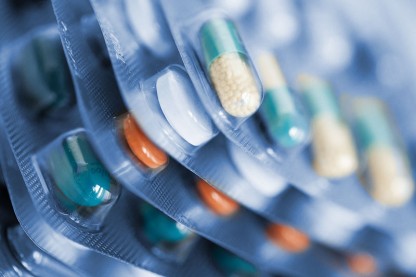What Do Antibiotics Do to Your Body? Part 2: Antibiotics Increase your Risk for Diabetes
 In part 1, you read about the devastating effects of antibiotics on the gut microbiome. If you need more convincing that antibiotics aren’t something to take lightly, read below to learn how antibiotic use is associated with diabetes.
In part 1, you read about the devastating effects of antibiotics on the gut microbiome. If you need more convincing that antibiotics aren’t something to take lightly, read below to learn how antibiotic use is associated with diabetes.
You’ll also learn what to do when a doctor recommends an antibiotic to treat your ailments.
Those who take more antibiotics are more likely to develop diabetes
Researchers published a study in the Journal of Clinical Endocrinology and Metabolism in August 2015. They tracked antibiotic prescriptions in a large group of people and found that taking five courses of any type of antibiotics raised the risk for type 2 diabetes by 53% compared to those people who took one or zero antibiotic prescriptions.[1]
Another study on over 200,000 diabetics and 800,000 controls found similar results, showing that people who had taken two to five antibiotic courses were significantly more likely to develop diabetes than those who took one or none. Those who had taken more than five antibiotics were 37% more likely to have diabetes.[2]
There is growing evidence that the gut microbiome is involved in the development of diabetes, which may explain the connection between antibiotic use and diabetes risk.[3]
Minimizing the risks of antibiotic use
Antibiotics can harm your gut health, increase your risk for diabetes, and wreak havoc throughout your body. Some of the other conditions associated with antibiotic use include Crohn’s disease and even some cancers like colorectal cancer.[4-8]
So what can you do to stay safe? First, you’ll have to be your own advocate and ask questions when an antibiotic is prescribed. Many types of colds, the flu, and other symptoms of infections are caused by viruses, not bacteria, so antibiotics won’t even help.
And in other cases, where the infection really is bacteria, your body may be able to get rid of the infection itself without the use of a prescription antibiotic.
Talk with your doctor about your options.
- Is the antibiotic the only course of treatment?
- Is it really necessary?
- Is there testing that can be done to determine if it really is a bacterial, and not viral, infection?
- What’s the worst-case scenario of trying to let your body fight the infection on its own?
Your doctor may resist this type of questioning, but don’t give up – it is well worth it to avoid unnecessary antibiotic treatment.
When antibiotics are your only option, look to probiotics for help
If you and your doctor determine that you really do need an antibiotic – that it is the safest course of treatment – then be sure to pay mind to your gut health.
Be proactive by taking a probiotic. A probiotic will help to replenish the beneficial bacteria in your gut and avoid some of the damage to your gut microbiome. Probiotics are already known to help people avoid diarrhea that is often associated with antibiotic use, likely because it helps to protect the microbiome from imbalance. The strain Saccharomyces bouladrii, in particular, is effective.[9] To learn more about choosing a probiotic, go here.
Take a probiotic for the entire time you are taking the antibiotic, and then continue for one to three weeks afterwards. Take your dose with food and not at the same time of day as the antibiotic.
You can also help support a healthy gut microbiome while taking antibiotics by eating more probiotic-rich fermented foods and prebiotics.
Share your experience
Do you take probiotics when you take antibiotics? Do you think it helps? Share your experience in the comments section below.
[1] J Clin Endocrinol Metab. 2015 Aug 27:jc20152696.
[2] Eur J Endocrinol. 2015 Jun;172(6):639-48.
[3] ISME J. 2015 Aug 14. [Epub ahead of print]
[4] Am J Gastroenterol. 2014 Nov;109(11):1728-38.
[5] Am J Epidemiol. 2012 Apr 15;175(8):775-84.
[6] Dig Dis Sci. 2015 Aug 20. [Epub ahead of print]
[7] Pharmacoepidemiol Drug Saf. 2015 May;24(5):534-42.


 Savor the Sweet Potato
Savor the Sweet Potato  Type 3 Diabetes: Does Diabetes Cause Memory Loss?
Type 3 Diabetes: Does Diabetes Cause Memory Loss?  Review These Blood Donation Requirements Before Giving Blood
Review These Blood Donation Requirements Before Giving Blood 